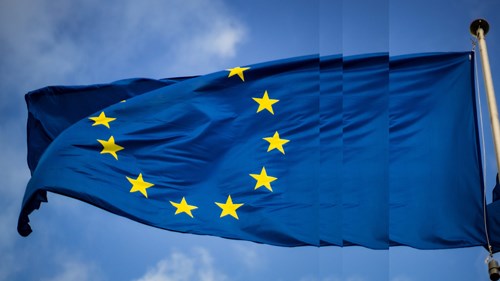Impact of forthcoming investment control reforms on M&A transaction practice
The law on the control of foreign direct investments in Germany, regulated in Sections 55 et seq. of Germany’s Foreign Trade Regulation, was already tightened just last year (see our previous article). Nevertheless, various reform projects are increasingly being discussed at the moment, the implementation of which is likely to have a considerable impact on M&A transaction practice.
The reform projects in detail
Three different packages of measures are currently being prepared, two at German and one at European level.
1. Cabinet bill to lower the threshold value
The Federal Cabinet has received a bill from the Federal Ministry of Economic Affairs to lower the relevant threshold value. The rules on investment control currently apply where a foreign buyer or a buyer from a non-EU or non-EFTA country wishes to acquire 25% or more of the voting rights in a German company. This threshold is now to be reduced to 15%. In addition, a further reduction and a restriction of the reduction to particularly critical infrastructures, such as IT or energy supply, are also being discussed.
The background to this measure is probably the experience in the 50 Hertz case. In this case, the Chinese state-owned company State Grid only wanted to take over 20% of the shares of the network operator 50 Hertz. This case was solved by the German government in another way, by referring also to its lack of competence to intervene: at its request, the KfW banking group took over the share.
Timetable: The threshold could be lowered relatively quickly. The Federal Government can bring about this legal change by means of regulations. Implementation is expected before the end of this year.
2. Sovereign investment funds
In addition, last week, there were public discussions about setting up a sovereign investment fund that could take over the shares in a company instead of the foreign investor who is thought to be critical. This fund solution can still be regarded as not entirely complete, however. It is completely unclear whether a right of first refusal could also be regulated.
Timetable: The launch of the fund and the legal structure require significantly more legislative preparatory work, as constitutional and budgetary issues would have to be resolved, among other things, and implementation is probably only possible within the framework of a normal legislative procedure (regarding the complexity of such projects also refer to our advice to the Federal Government on the establishment of a state fund regarding the nuclear waste disposal).
3. EU framework regulation
Almost exactly one year ago, the European Commission presented its proposal for a framework regulation. This contains three main components: (i) national procedures; (ii) a reporting mechanism; and (iii) a cooperation mechanism.
In our view, the German procedure under the Foreign Trade Regulation corresponds to the framework provided by the framework regulation. In practice, however, the framework regulation is likely to have a considerable impact on the duration of the procedures and possibly on the willingness of the bodies involved to find compromises. In any event, Member States must notify their formal investment audits to the other Member States and await their comments for 25 days. This may be followed by another opinion from the Commission, for which the Commission in turn has 25 days. This means that, in practice, the formal investment verification procedure would have to take 50 days. It would thus have a minimum length of two months, which is often not achieved in practice at present.
Timetable: The European Parliament's report and the Council's position have been available since May and June of this year, respectively. The trilogue between the EU institutions involved is currently taking place, with the aim of adopting a regulation before the European Parliament is re-elected in May 2019.
Impact on the transaction practice
Lowering the threshold would have a significant impact on private M&A transactions when acquiring an interest of less than 25%. In many cases, these would only be feasible with a corresponding time delay. However, there are areas in which this is less important in practice because other regulatory processes already have to be gone through when acquiring a stake of less than 25%, such as the acquisition of a bank.
In the area of public takeovers, the establishment of a stake would be affected beforehand. This applies not only to the acquisition of blocks of shares in a listed company, but also to capital increases from authorised capital. In the latter case, for example, the constellation, which is certainly relevant in practice, where shares from authorised capital with a simplified exclusion of subscription rights are subscribed by an existing shareholder would be made more difficult if such shareholder were to thereby exceed the threshold of 15%.
Public takeover bids as such, on the other hand, are aimed at acquiring control and thus regularly at exceeding the threshold of 30% of the voting rights in the target company. There will therefore be no changes here. It will, however, be more problematic that more time will have to be factored in for the investment review procedure when the EU framework is adopted. From the bidder's perspective, this must be taken into account in the timetable for a public takeover. The swift conduct of a public bid procedure, which is often desirable to avoid capital market risks from the bidder's point of view, will then be difficult to achieve in such cases and shareholders will have to wait until they know whether their acceptance of such a public bid will become effective.
Furthermore, in many cases, acquiring companies through a sovereign investment fund is likely to be financially unattractive from the government’s perspective, at least if the purchase is made on the same terms as the foreign investor would have made it. This is because the investor's return assessment often takes synergy effects into account. For example, it is often a matter of opening up the European market for the investor’s own products or selling the target company's products on the investor’s domestic market. Chinese investors in particular have technology transfer in mind. These considerations are included in the investment price, and these are all considerations that the government would not be able to commercialise. In addition, the now largely state-owned companies may also suffer competitive disadvantages as a result of the requirements of public procurement law, particularly in the energy, water and transport network sectors.
Conclusion
Foreign investors are concerned about developments not only in Germany; we are seeing increasing caution on the part of Chinese investors in particular. Already the tightening in 2017 – and in particular the extension of the appeal period (“Aufgreiffrist”) – increased the possibilities of the Federal Government to effectively prevent unpleasant investments and to decisively counter any appearance of "naivety" on its part. In our opinion, the legislator should ensure that the scope of application of Sections 55 et seq. of the Foreign Trade Regulation remains limited and that the threshold values only cover truly critical voting shares. Furthermore, the already time-consuming investment review procedure should be kept as unbureaucratic and short as possible, not least in order to ensure that pragmatic solutions remain possible.










